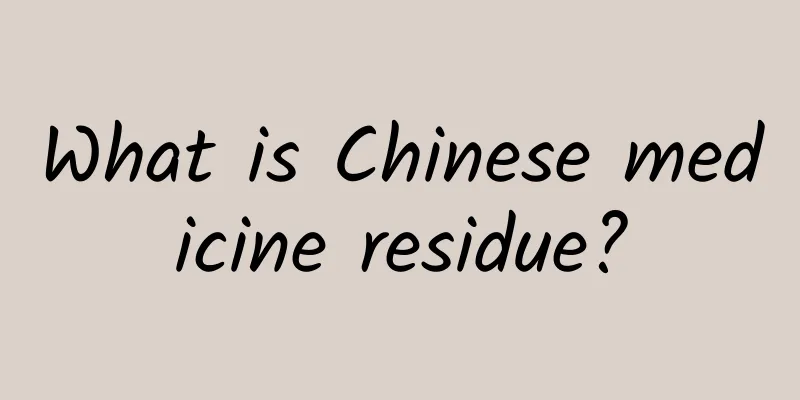Does Huangbo harm the kidneys?

|
Huangbo is a very common medicine in life. It can achieve good therapeutic effects after taking it. Its main effect is clearing away heat and detoxifying. It is usually taken with other medicinal materials, such as licorice and gardenia, to make the effect more significant. However, it cannot be taken for a long time, otherwise it will damage your kidneys. Huangbai, a traditional Chinese medicine name. It is the dried bark of the yellow bark tree of the Rutaceae family. It is commonly known as "Sichuan Huangbai". The production method is to peel off the bark, remove the rough skin, and dry it in the sun. It has the effects of clearing away heat and dampness, purging fire and eliminating steaming, detoxifying and treating sores. 1. "Treatise on Febrile Diseases": Phellodendron chinense, Gardenia jasminoides, and Licorice root. Treats jaundice and fever caused by typhoid fever. 2. "Fu Qingzhu's Gynecology": Phellodendron chinense, yam, plantain seed, Euryale ferox, and ginkgo. Treats damp-heat in the lower abdomen and leucorrhea. 3. "Fu Qingzhu's Gynecology": Phellodendron chinense, yam, plantain seed, Euryale ferox, and ginkgo. Treats damp-heat in the lower abdomen and leucorrhea. Phellodendron chinense is the dried bark of the Rutaceae plant Phellodendron chinense or Phellodendron amurense. The former is commonly known as "Chuan Huangbai" and the latter is commonly known as "Guan Huangbai". It can be used as medicine, with bitter and cold nature and flavor. It is mainly used to treat heat dysentery, diarrhea, thirst, jaundice, paralysis, nocturnal emission, stranguria, hemorrhoids, bloody stool, leucorrhea, bone steaming and fatigue fever, red and swollen eyes, mouth and tongue ulcers, and sores and swelling. 【Pharmacological action】 1. The water decoction or alcohol extract of Phellodendron chinense has different degrees of inhibitory effect on Staphylococcus aureus, Staphylococcus albus, hemolytic Streptococcus, Pneumococcus, anthrax Bacillus, Vibrio cholerae, diphtheria Corynebacterium, Bacillus subtilis, Escherichia coli, Pseudomonas aeruginosa, Salmonella typhi, Salmonella paratyphi, meningococcus, etc. in vitro. Experiments also show that Phellodendron chinense has a strong inhibitory effect on Shigella dysenteriae and Shigella dysenteriae. In addition, the decoction and water extract of Phellodendron chinense have different degrees of inhibitory effects on various pathogenic skin fungi and Trichomonas vaginalis in vitro. 2. Subcutaneous injection or oral administration of the extract of Phellodendron chinense without berberine has a significant inhibitory effect on gastric ulcers in rats caused by aspirin or pyloric ligation, and is also effective against stress ulcers in mice. 3. Intraperitoneal injection of Phellodendron chinense fluid extract has a significant hypotensive effect on anesthetized cats, but has no effect on heart rate. In addition, Phellodendron chinense has antipyretic, anti-inflammatory and anti-platelet aggregation effects. |
<<: Can wolfberry and astragalus be taken together for a long time?
>>: Cooking with Creeping Grass
Recommend
A world first! Good news for millions of paralyzed people: 3D artificial spinal cord cures paralyzed mice
Written by: Zhu Hengheng Editor: Wang Haha Layout...
The efficacy and function of the gentian leaf chrysanthemum
Many people know that Saussurea ovata has unique ...
The efficacy and function of marsh willow herb
Willowleaf is a very common medicinal material in...
Taboos on eating dandelions
No matter what kind of food it is, there will be ...
The efficacy and function of wind chill grass
Traditional Chinese medicine is very effective in...
How far does Greater Beijing have to go to become a “zero-waste city”?
The accumulated stockpile of various types of sol...
How long is the best time to stew Chinese medicine?
Chinese medicine must be boiled in water before i...
Today many people are doing two things: testing nucleic acid and stockpiling goods...
Just yesterday, Beijing announced that Chaoyang D...
A man suddenly had an epilepsy in the middle of the night. Was it because he had a worm in his brain?
It is hard for people to imagine that parasites c...
Alibaba Research Institute: Online shopping rankings of key universities across the country
On June 27, Alibaba Research Institute and Taobao...
The efficacy and function of loquat bark
There are many common Chinese medicinal materials...
The efficacy and function of sisal
I believe many people are familiar with the Chine...
Did you eat glowing shrimp meat because of nuclear wastewater? Here comes the February science rumor list →
1. If you are nearsighted when you are young, can...
The efficacy and function of split-leaf begonia
Do you know about split-leaf Begonia? It is a com...
The efficacy and function of Acacia vine
Traditional Chinese medicine is very effective in...









